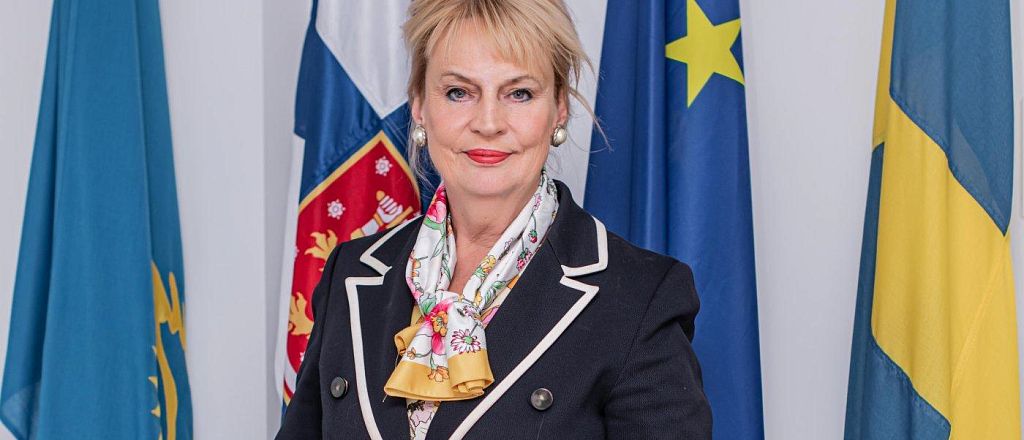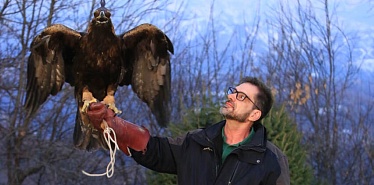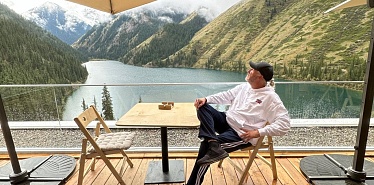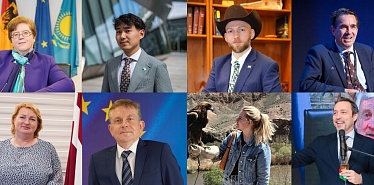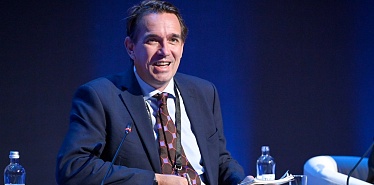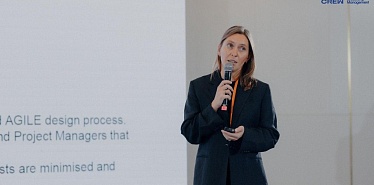Ewa Polano shared what tasks the Ambassador of the Kingdom of Sweden to the Republic of Kazakhstan performs and outlined the main areas of cooperation between our countries.
Ewa Polano, Astana — Ambassador of the Kingdom of Sweden to the Republic of Kazakhstan, @ewa_polano
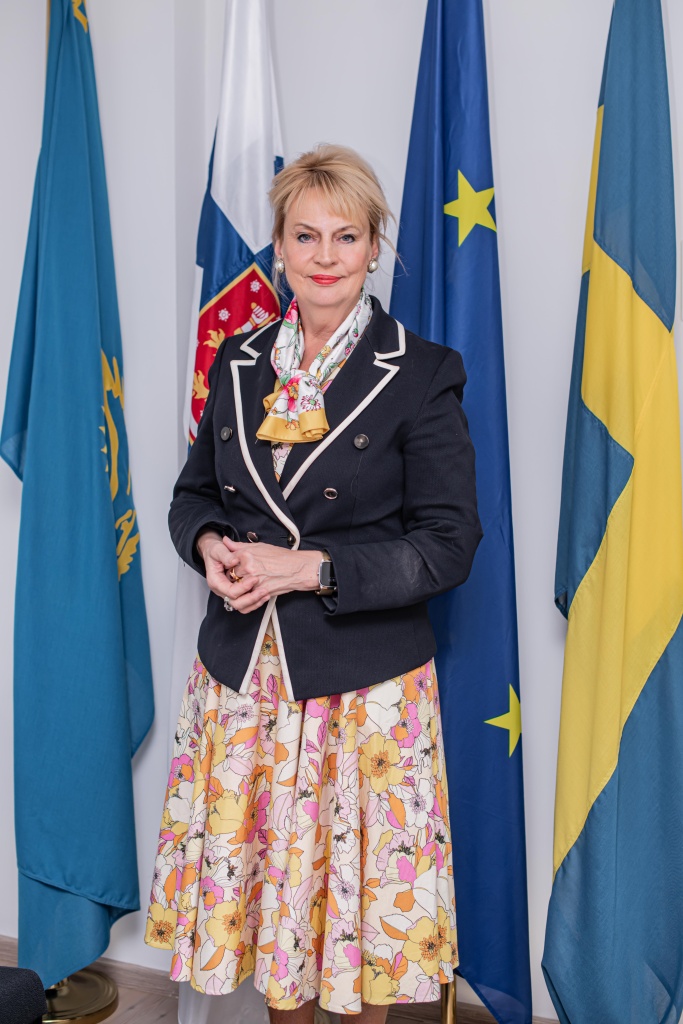
About myself
Since childhood, I dreamed of going to Africa and becoming a missionary. It was a romanticized idea because, at that time in the 1960s, people in Sweden were increasingly eager to help developing countries. With the advent of television, we had more opportunities to learn about the lives of others. I was inspired by the idea of going to Africa, helping people, and teaching them to read. I have always been adventurous, eager to learn and discover new things, so I chose political science and international relations.
Later, while working with refugees in Vietnam, I encountered persecution of minorities. It was also my first time seeing how the Swedish embassy, the UN, and international organizations operate. This inspired me to become a diplomat or work in international development cooperation. At that time, I believed becoming a diplomat was extremely difficult—almost an unattainable goal. However, I studied hard and, when I applied for diplomatic courses, I was one of the ten fortunate candidates chosen out of thousands. Eventually, I became a diplomat at the age of 26.
About my work
I have worked as a diplomat for over 30 years, serving in Swedish embassies across the world: in Argentina, Syria, Lebanon, Germany, Vietnam, Kuwait, Baghdad, Singapore, and Guinea-Bissau. In 2001, I became an ambassador for the first time, and I have now held this role for over 20 years. During this time, I have served as an ambassador in Mexico, Angola, Qatar, Indonesia, and now in Kazakhstan — this is my fifth appointment.
One of the most important tasks of an ambassador is writing political reports. It is vital to understand what is happening domestically in the country as well as Kazakhstan’s international relations with other states: Turkey, Russia, China, and the European Union. I read extensively, meet fascinating people, and hold discussions with ministers before compiling reports.
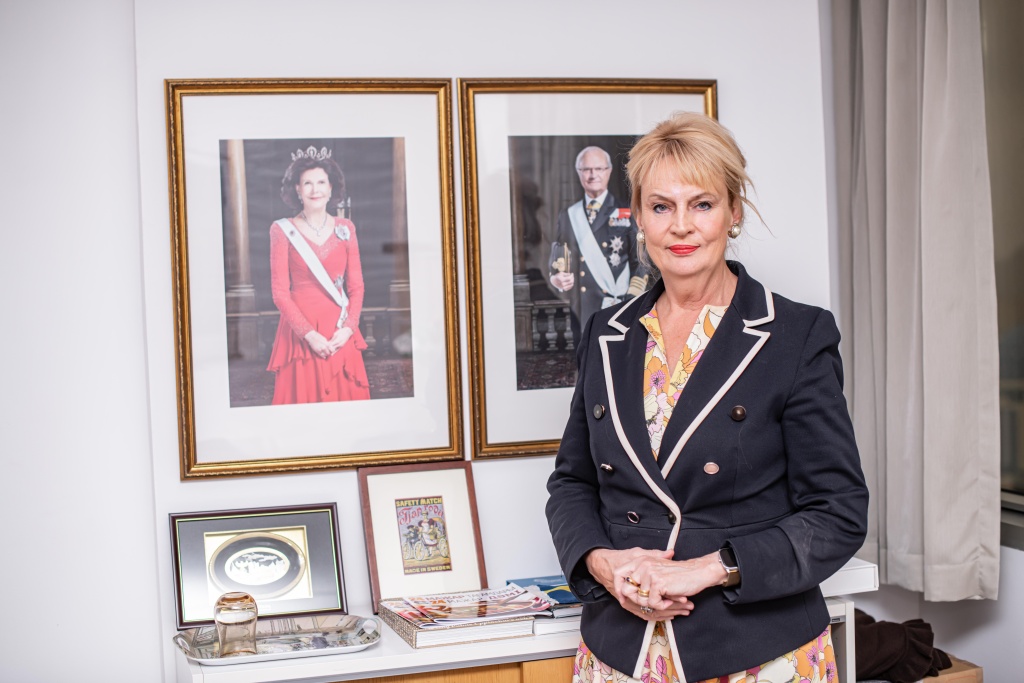
The second task is to represent Sweden. For example, at meetings in Kazakhstan’s Ministry of Foreign Affairs, the UN, or the EU. It is important to express our position — this is called public diplomacy. Representing my government, I must be ready to convey the position of an entire country. If Kazakhstan’s government needs something from Sweden, they approach me, and we discuss all relevant issues.
The third, equally important role is supporting Swedish businesses in Kazakhstan. For instance, in June, we opened a Scania transport manufacturing plant in the Karaganda region. Volvo, another Swedish company, will soon open a service center in Almaty. Additionally, Diaverum, a healthcare company, has opened dialysis clinics across the country. These investments are crucial for patients with chronic kidney diseases, and I was honored to participate in the opening of Kazakhstan’s first digital clinic.
In May, I met with representatives of 45 Swedish companies operating in Kazakhstan. I offered them assistance, especially in resolving document-related issues. I can raise pressing concerns at meetings and emphasize the importance of creating favorable conditions for investments.
About Central Asia
I arrived in Astana on December 1, 2022, directly from Angola in Southern Africa — from +30 degrees of warmth to freezing temperatures. It was sunny, cold, and surrounded by white snow. My first reaction was: “What a beautiful place!”
I am fortunate because I arrived during a time when Kazakhstan and Central Asia have gained strategic importance. The geopolitical situation in the region, particularly in Kazakhstan, has changed significantly, and the country now plays an even greater role. From a political perspective, I find it incredibly fascinating here.
I enjoy being here. I am learning a lot and exploring this new country with great pleasure. What especially amazes me is the generosity and hospitality of Kazakh people—their friendliness, kindness, and constant smiles. It is important to smile, be positive, and try to understand others. I think the friendliness of the locals is sincere, perhaps because they endured tough times living in the harsh steppes. Kazakhstanis are an extraordinary nation, and I learn something new every day, savoring each moment here.
About working in Central Asia
Sweden is a member of the European Union, so we actively participate in all EU initiatives. One of our priority areas is education, particularly university education. We strive to send students from Kazakhstan to study in Sweden and hope that, over time, Swedish students will also come here.
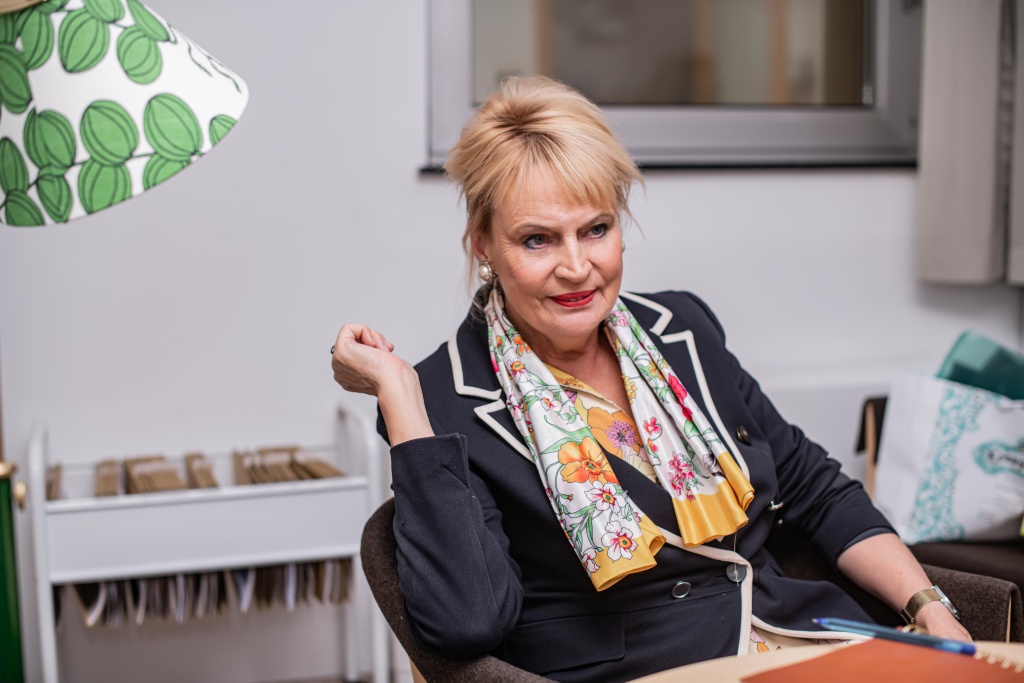
While there are no scholarships directly from our government, talented students can study in Sweden through the Bolashak program. We work closely with this program and are discussing the inclusion of more Swedish universities so that talented Kazakhstani students can study in Sweden with full financial support.
We are also focused on healthcare. By selling medical equipment, we also share experiences and discuss joint strategies. For example, last year, we invited staff from Kazakhstan’s Ministry of Health to Sweden to participate in a program on digital and rural healthcare.
We are developing cooperation in sustainable urban technologies. Recently, I invited the mayor of Astana and his delegation to Sweden to study our experience. They will explore water technologies, waste management, biogas, clean air systems, and eco-friendly construction. Sweden has extensive expertise in this area, and we hope this collaboration will help Kazakhstan address environmental challenges related to climate change, green technologies, and sustainable urban development.








